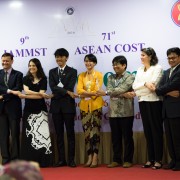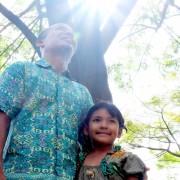Indonesia is the third largest democracy in the world, the largest economy in Southeast Asia and is home to some of the world’s richest biodiversity. Indonesia enjoys steady economic growth and has emerged as a regional leader; however, the country faces environmental and other development challenges.
This populous nation’s young democracy, emerging economy and strategic location make Indonesia an important partner to the United States.

The United States and the Association of Southeast Asian Nations (ASEAN) awarded first place of the Young Southeast Asian Leaders Initiative (YSEALI) World of Food Innovation Challenge to a team of three Indonesian students from Gadjah Mada University. The team’s MINO Microbubble Generator technology increases oxygen in water and as a result, enlarges tilapia fish size by 40 percent, improving fish survival rate by nine percent, and ultimately increasing the fish farmers’ harvest.

Although Indonesia has made remarkable progress over the last decade, Tuberculosis (TB) remains one of the top four causes of death in the country. In addition to the results of a recent prevalence survey which showed a much higher TB prevalence than previously estimated, an increase in Multi Drug Resistant TB (MDR-TB) cases, inadequate number of TB and MDR-TB case in public and private hospitals, and under-reporting in large hospitals and within the private sector pose significant challenges to the national program.
Through the PRIORITAS (Prioritizing Reform, Innovation, and Opportunities for Reaching Indonesia’s Teachers, Administrators, and Students) program, USAID has committed itself to encouraging improvements in early grade reading by developing grade-appropriate reading books that will enrich current classroom instruction.








Comment
Make a general inquiry or suggest an improvement.